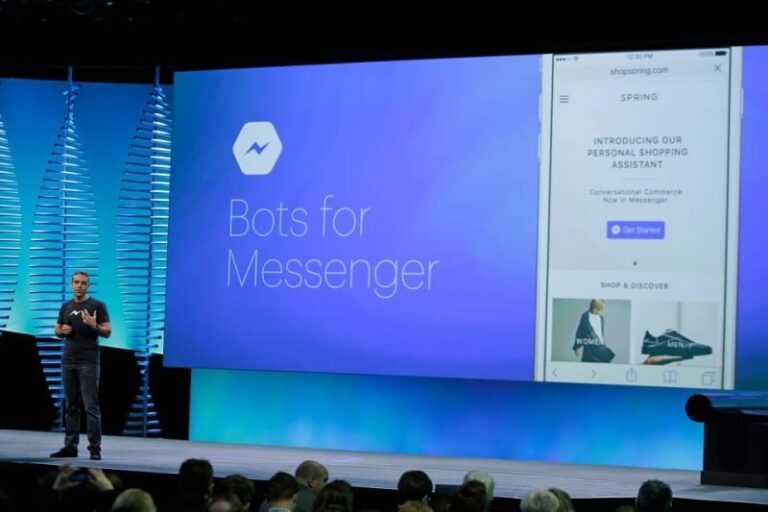Significant investment for one of the most innovative chatbot companies

The most successful chatbot companies offer an innovative product and possess the financial muscle to compete with rivals.
Certainly – one of the best bots around – has always produced the former.
But with significant investment, including from the founder of Nordic ecommerce giant Whiteaway, the Copenhagen-based business can now boast the latter as well.
Certainly as one of the chatbot companies revolutionizing ecommerce
Picture this. You’ve recently purchased some clothes from an ecommerce store, and you have a query.
You do what most of us would and check the brand’s website, but you’re unable to find an answer.
Upon calling customer support – which closes soon – you discover that you’re 28th in the queue to speak to a customer success representative.
It could take days to get a response to an email.
What do you do?
The solution: Conversational AI, or a chatbot.

Many businesses with a presence online are realizing the importance of optimizing their customer experience so that valued clients are not put in this situation.
And they are increasingly turning to chatbot companies like Certainly to do this.
With its 24/7 customer support, conversational commerce capabilities, and advanced machine learning, Certainly is streamlining customer service costs while enhancing customer satisfaction.
On the path to growth: big investment for Certainly’s ultimate bot
After a 2.5 million DKK investment from the company’s first venture round, Certainly is ready to further expand.
“We could see that because the interest was so great, we would be able to grow faster,” said Henrik Fabrin, CEO and co-founder of Certainly.
“Chatbots are new to many people, so our customers need some assistance.
“Otherwise, we risk a situation like in 2008, when every business wanted an app, but no one was sure how and why their customers should use it,” Fabrin finished.

Fabrin was a successful founder of several other companies before starting Certainly.
As a result, he had the available funds to invest in chatbot technology.
Certainly’s employees spent one year focussing on development and deployment, which Fabrin paid for out of his own pocket.
Despite increasing sales, the Co-Founder felt the time was right to get an investor on board.
“We had not been pitching ourselves, and we actually turned down quite a few potential investors,” he said.
“However, we ended up saying yes to Esben and Thomas because they are exceptionally talented, have solid networks, and they also happen to be lovely people!”
The names Esben and Thomas refer, respectively, to Esben Gadsbøll – who founded the Whiteaway group and is now a full-time angel investor – and Thomas Black-Petersen, who sold his IT company Inspari in 2016.
Certainly’s practical approach provides value for investors
“I had seen several chatbots, but I did not find the technology particularly exciting. It was not the right time for me to invest in it,” Gadsbøll said.
“However, Certainly has a completely different, practical approach and could provide value now. I could see that they had a lot of enthusiastic customers,” he continued.
Gadsbøll invests with a sharp focus on e-commerce; an industry he is intimately familiar with through his role as co-founder of Whiteaway.
Recent chatbot growth has shown us that chatbots are useful for a variety of purposes.

Gadsbøll also sees a prominent place for chat media in future online shopping experiences.
“Being able to manage 75% of customer inquiries with a chatbot, and only require people for that last 25% is super interesting.
“Once you have enough orders, it becomes expensive to have customer service employees,” he said.
Chatbot companies are not a new phenomenon
Back in 2005, Ikea launched the chatbot Anna, who could answer basic questions about things like opening hours.
But after ten years of service, she was retired, as customers were not overly satisfied with the service.
Today, the idea of automated answers has seen a great renaissance.
This is perhaps in part because of Amazon’s Alexa service and the rapid development of artificial intelligence.
The way to build a bot is by training the machine with a lot of data from the real world.

That world can be very different from company to company – for example, a bank has very little in common with an ecommerce store selling underwear.
“Artificial intelligence and machine learning are all very nice, but you need a lot of data before it gets really interesting,” said Esben Gadsbøll.
“I hear many people say that ‘In about two or three years, we’ll have enough data.’ But then where do they get that data from?”
Creating one of the best bots available
To Henrik Fabrin and his colleagues in Certainly, it’s about getting started at the customer end quickly to create effective solutions for customer service.
“We usually start by inputting the 50 or 100 most common questions.
“However, it’s a journey with most companies. You can’t get answers to all types of questions, but you don’t need that,” the founder said.
On one ecommerce store, the chatbot may handle a customer who wants to return an item and send the package labels.

Once the request becomes more complicated than the coding can manage, a human takes over.
Outside of opening hours, you can order a phone call or a chat with a human the next day.
Besides customer service, an automated chat can also be used to purchase items.
This is particularly essential in Certainly’s home market of Denmark, where Facebook Messenger is extremely popular.
“In Denmark, it is the app where people spend the most time talking. As a brand, being able to sell through Messenger is interesting, because that’s where the consumers are,” says Henrik Fabrin.
An exciting future with Conversational Commerce
Conversational AI platforms are resolving inefficiencies within the customer service sector today.
It will be fascinating to see how this further develops.
Chatbot companies like Certainly offer conversational commerce capabilities, where customers receive a more personalized experience when shopping through zero-party data.

It allows for navigation around UIs, upselling, product suggestions, customer satisfaction scores (CSAT) of up to 96%, and ultimately increased revenue.
Considering the lack of coding experience needed to build a bot with Certainly, there’s clearly a compelling case for the continued success and growth of the business.
Article written by Farnaz Aref

